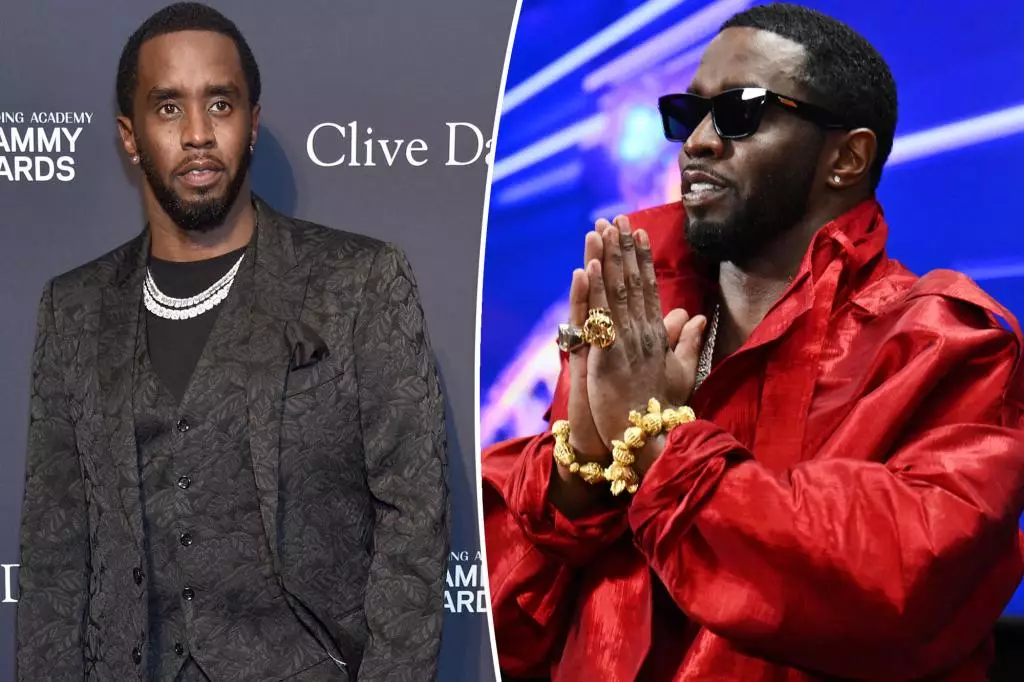In the high-stakes setting of a New York City courtroom, the trial of Sean “Diddy” Combs has reached a critical juncture, as jury selection is postponed until early next week. The decision by Federal Judge Arun Subramanian comes just days before opening arguments are poised to unveil shocking allegations against the renowned hip-hop mogul. This delay, requested by Combs’ defense team, has caused a ripple of tension in the courtroom, signaling the complex nature of the case that intertwines celebrity status with serious criminal implications.
The prosecution paints a damning portrait of Combs, accusing him of using his social standing to prey on women over a two-decade span, from 2004 to 2024. Despite pleading not guilty and being held without bail, the case is marked not just by the charges of racketeering and sex trafficking but also by the societal themes it exposes about the darker side of fame and power.
Jury Selection: Implicit Bias and Public Perception
Jury selection is a meticulous process, inherently rife with subtle biases that can sway outcomes. In this case, potential jurors were scrutinized for their ability to remain impartial, particularly in light of disturbing evidence. The anticipation of explicit videos depicting sexual acts, including those that might disturb the sensibilities of ordinary citizens, looms large over the selection. The challenge presented by this case goes beyond simple legal analysis; it taps into cultural narratives that surround the intersection of celebrity, consent, and accountability.
With the jury pool narrowed down to a manageable number, the forthcoming decisions regarding who remains on the jury will illuminate societal biases. Particularly telling are the numerous jurors who expressed being affected by a widely circulated video of Combs assaulting a former girlfriend in a hotel. This highlights how pre-existing public perceptions can inadvertently influence justice, underscoring the pervasive nature of celebrity culture in every aspect of contemporary life.
The Allegations: A Disturbing Allegory for Celebrity Culture
The charges against Combs encapsulate a narrative that has become all too familiar: a powerful figure allegedly exploiting that power to engage in misogyny and abuse. Prosecutors describe a series of grotesque incidents—including orchestrated drug-fueled orgies and physical abuse that ranged from choking to intimidation. The indictment paints Combs as a figure who has repeatedly crosswed ethical lines in his interactions with women, leveraging his fame in the most nefarious ways imaginable.
Yet, the defense aims to counter these serious allegations by arguing that the prosecution seeks to criminalize what they describe as sexual activities between consenting adults. This argument raises pertinent questions about the nature of consent and the implications of drug use and coercion in intimate settings. The complexity of consent can overshadow discussions in the court of public opinion and complicate the path to a fair judicial process.
Public Response: The Duality of Diddy’s Persona
In navigating this trial, the public reaction to Combs will reveal an intriguing duality. On one hand, he is celebrated as a titan in the hip-hop industry, a visionary whose influence spans music, fashion, and entrepreneurship. On the other hand, the allegations against him strip away the glamorous façade, exposing the vulnerabilities and moral failings that often accompany unchecked power.
The conversations surrounding Combs’ case extend far beyond the individual. They serve as reflections of society’s struggles to hold celebrities accountable while grappling with the allure of fame. Although he has publicly taken responsibility for some of his past actions, his legal battles challenge him to confront the more profound implications of his behavior and the impact it has on society as a whole.
As the trial unfolds, it becomes increasingly evident that the outcome will bear significance beyond Combs himself. It will prompt dialogue about the cultural narratives surrounding celebrity, consent, and accountability that resonate deeply within contemporary society. This case poses a crucial question—how do we reconcile our admiration for talented figures with the necessary accountability that must arise from their actions? The answer may influence how we navigate similar issues in the future.
